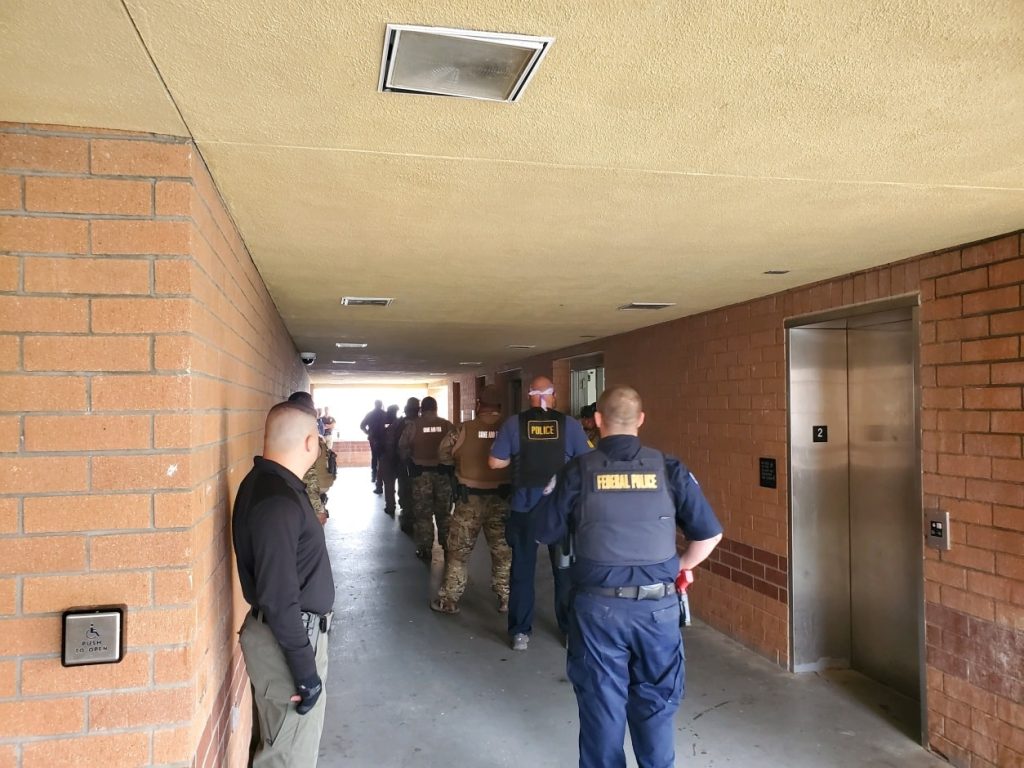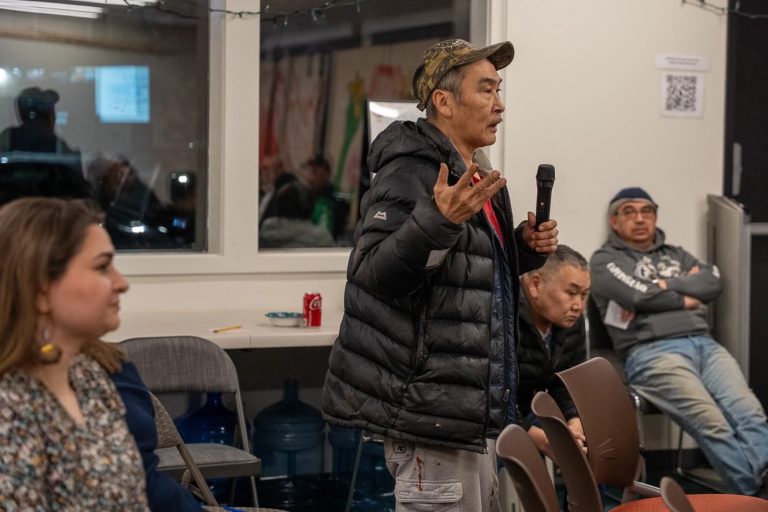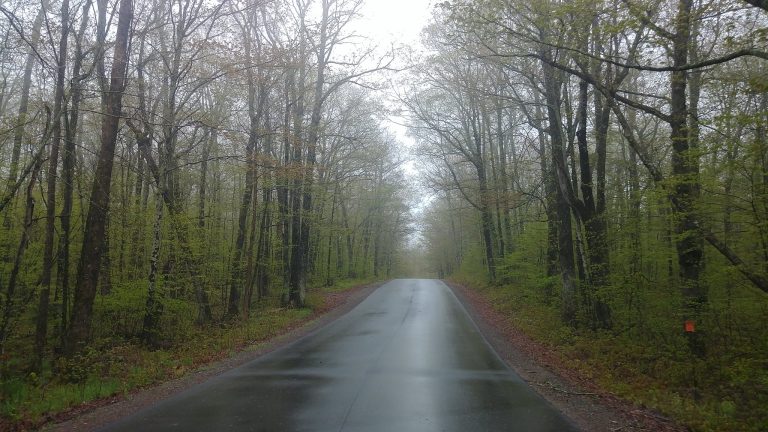Podcast: Play in new window | Download | Embed
Photo: Mescalero Apache Conservation Officers with BIA OJS Officers participating in Active Shooter Training in 2022. (Courtesy Mescalero Apache Tribe / Facebook)
Officials with the Mescalero Apache Tribe in New Mexico recently told state lawmakers during an interim legislative meeting that they’re concerned about the impact of potential cuts to federal law enforcement on the reservation.
Jeanette DeDios has more.
The Economic and Rural Development and Policy Committee held its interim hearing in Mescalero.
Vice President of the Mescalero Apache Tribe, Duane Duffy estimates that there could be a 20-to-30% decrease in federal funding for law enforcement based on the proposed budget from the White House.
He says this is concerning because the tribe relies completely on federal funding to pay for its law enforcement.
“The federal government just built a brand new detention facility on our reservation, and they’re still trying to staff that. And you know, the question is, are those federal cuts, are they going to affect whether or not they’re going to be able to open that facility? And so they’ll have a federal facility sitting there as a shell, vacant until they can fully staff it.”
The tribal nation makes up 463,000 acres and it relies on six Bureau of Indian Affairs law enforcement officers.
President Thora Padilla of the Mescalero Apache Tribe says even losing one officer could be detrimental.
“So any kind of cuts are gonna really impact us, and it’s difficult to try to stretch those resources over the 24-hour period that we have to protect our people with.”
Duffy says he and Padilla will be having further discussions with both the federal and state delegations to work on filling the gaps from future cuts.

Then AFN President and now Denali Commission Federal Co-Chair Julie Kitka at Alaska Day event held in an Washington D.C. in 2023. (Courtesy AFN)
The Trump administration wants to eliminate the federal agency that’s helped Alaska villages develop infrastructure with more than $2 billion over the decades.
The Alaska Desk’s Alena Naiden from our flagship station KNBA reports on how likely the government is to cut the Denali Commission – and who would stand to lose.
The cut is in the Trump administration’s budget proposal for the federal fiscal year that begins in October.
It’s an effort to curtail what they call taxpayer waste and reduce the federal role in local economic development.
Julie Kitka is the federal co-chair at the Denali Commission.
She says previous administrations have made similar proposals and she is optimistic about the commission continuing its work.
“We take it seriously, but we’re very hopeful that we’ll be identified and funded in the appropriations process.”
The president’s “skinny budget” outlines the administration’s funding priorities, but Congress has the final say, expected in legislation in September or later.
Congress created the Denali Commission in 1998 to work in partnership with the federal government, state, and tribes to address rural Alaska’s needs.
Since then, the agency has been helping villages develop power generation facilities, transportation infrastructure, and water and sewer systems.
It has also provided job training and funded more than 150 rural health clinics.
“We have priority on small and distressed communities, environmentally threatened.”
The administration said it wants to cut the Denali Commission – along with five other similar regional agencies – because states understand their local issues best and can address them more effectively.
The state of Alaska is already a partner and a co-chair of the Denali Commission.
Overall, Kitka says Alaska is growing in national and international importance, and she believes the administration will recognize the infrastructure needs of a state in such a strategic location.
“There is really important work that needs to be done in our state for the resilience of our communities and our people to deal with the challenges that are just growing – the warming of the Arctic and increased transit, the access for natural resources, trade, and so forth.”
Kitka says she will continue working with the House and Senate to make the case for the commission.
Get National Native News delivered to your inbox daily. Sign up for our daily newsletter today.



